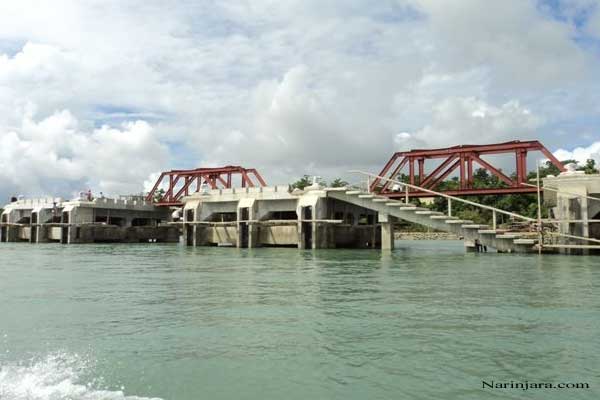Dhaka: Despite protest and resentments, the energy-hungry China has advanced construction of a trans-Burma oil and gas pipelines project. Local people are losing their land and fishing grounds because of the project.
They are also being discriminated in the compensation process. Workers are getting very low payment and the women are facing unequal wages and even vulnerability to the growing sex industry around the project, said in a recent report titled Sold Out, prepared by Shwe Gas Movement.

The project includes the construction of a deep sea port, gas terminal and oil transfer point in Burma’s Arakan State as well as laying of nearly 800 kilometers of pipes across the country. The dual pipelines are designed to pump Burma’s quality natural gas reserves as well as oil from the Middle East and Africa to feed China’s energy needs.
“The China National Petroleum Corporation and companies from Korea and Burma are speeding ahead with construction despite outbreaks of armed conflict near the pipeline route. The Burma Army has launched offensives to clear ethnic resistance forces out of resource-rich areas in northern Kachin and Shan states since March 2011. The battles have left an estimated 50,000 newly displaced,” added the report. Speaking to this writer from Chiang Mai of Thailand, the Shwe Gas Movement activist Wong Aung confirmed that thirty-three army battalions are currently deployed along the pipeline corridor, naval patrols guard offshore construction, and a missile complex is being built next to the deep sea port.
“Widespread land confiscation to make way for the pipeline corridor is leaving farmers jobless and fishing grounds are now off-limits, contributing to rising migration. Local people are able to secure only low-wage, temporary, and unsafe jobs on the project and are not able to complain about working conditions or wages without retribution. Companies are ignoring widespread abuses and worsening civil war,” added the young activist.
Resentment against the so-called Shwe project is growing and communities are beginning to stand up against abuses and exploitation. Despite threats and risk of arrest, farmers and local residents are sending complaints to local authorities. Laborers are striking for better pay and working conditions and women running households are demanding electricity.
Shwe Gas Movement, a community based organization campaigning against the Shwe Gas Project and China’s Trans-Burma Pipelines, and for human rights, environmental justice, and revenue transparency in the oil and gas sector, is demanding the investors to pull out before the project blows up in their faces.
If used domestically, the natural gas would transform Burma’s failing economy, addressing chronic energy shortages and unaffordable petrol prices that led to uprisings in 2007. The gas will instead be exported and revenues from the sale of the gas – estimated at US$29 billion – will be swallowed up by a fiscal black hole that omits gas revenues from the national budget, the report argued.



